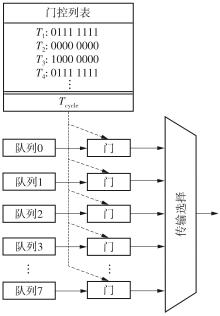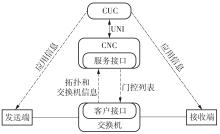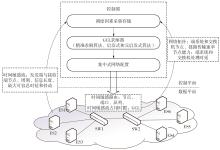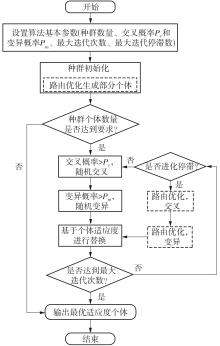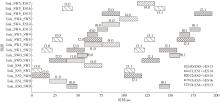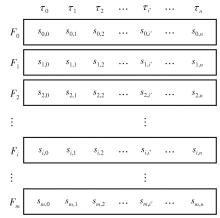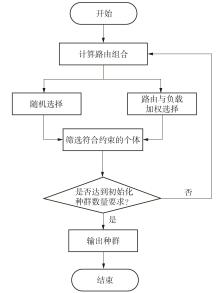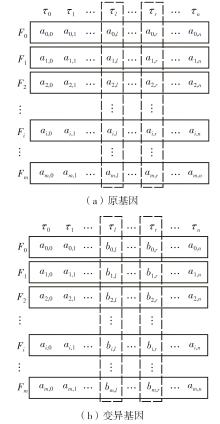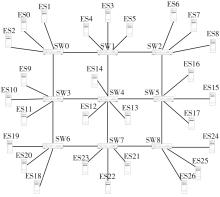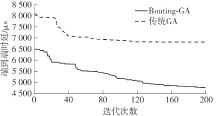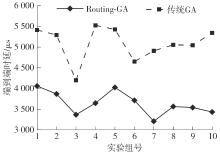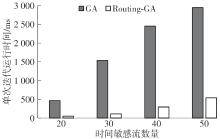| [1] |
QIU Yudong, WANG Zhan, XIE Zhishen.
Optimization for Steel Frames with Semirigid Connections Based on Hybrid Algorithms
[J]. Journal of South China University of Technology(Natural Science Edition), 2023, 51(6): 72-77.
|
| [2] |
LU Yiqin, XIE Wenjing, WANG Haihan, et al.
Security-Aware Scheduling Method for Time-Sensitive Networking
[J]. Journal of South China University of Technology(Natural Science Edition), 2023, 51(5): 1-12.
|
| [3] |
LU Yiqin, XIONG Xin, WANG Meng, et al..
A Bandwidth Allocation Method of AVB Traffic Based on Link Load Balancing in TSN
[J]. Journal of South China University of Technology(Natural Science Edition), 2023, 51(11): 1-9.
|
| [4] |
WENG Jiancheng, WANG Maolin, LIN Pengfei, et al.
Cross-line Combined Bus Scheduling Optimization Method Based on Passenger Flow Characteristic Identification
[J]. Journal of South China University of Technology(Natural Science Edition), 2022, 50(9): 39-48.
|
| [5] |
QIN Yaqin, QIAN Zhengfu, XIE Jiming, et al.
Cooperative Lane Change Decision-Making Model of Bottleneck Emergency Section in Weaving Area Based on Social Force
[J]. Journal of South China University of Technology(Natural Science Edition), 2022, 50(7): 66-75.
|
| [6] |
ZHENG Yajing, LI Yaohui, JIN Wenzhou.
Connection Scheme Optimization of Last Trains of Urban Mass Transit Network Based on Considering the Transfer Passengers
[J]. Journal of South China University of Technology(Natural Science Edition), 2022, 50(5): 32-39,72.
|
| [7] |
XIA Qinxiang, LI Kai, MA Jun, et al.
Die Electrode Scheduling Problem Solution Based on Genetic Algorithm
[J]. Journal of South China University of Technology(Natural Science Edition), 2022, 50(3): 80-87.
|
| [8] |
ZHOU Zhong, DENG Zhuoxiang, CHEN Yun, et al.
Strength Prediction of Foam Light Soil Based on GA-BP Neural Network
[J]. Journal of South China University of Technology(Natural Science Edition), 2022, 50(11): 125-132.
|
| [9] |
LIU Xuan, WANG Zihang, ZHANG Tongrui, et al.
Optimal Control Strategy for Lateral Stability of Port Heavy-Duty AGV
[J]. Journal of South China University of Technology(Natural Science Edition), 2021, 49(8): 113-121.
|
| [10] |
LI Jing WANG Chen ZHANG Jiaxu.
Vehicle Speed Estimation Based on UniTire Model
[J]. Journal of South China University of Technology (Natural Science Edition), 2021, 49(5): 47-55.
|
| [11] |
LUO Yutao, ZHOU Tianyang, XU Xiaotong.
Time-Varying LQR Control of Four-Wheel Steer /Drive Vehicle
Based on Genetic Algorithm
[J]. Journal of South China University of Technology (Natural Science Edition), 2021, 49(3): 114-122.
|
| [12] |
JIN Gang HE Zhihao WANG Yingjun.
5G Frequency Selection Surface Shape Optimization Method Based on Genetic Algorithm
[J]. Journal of South China University of Technology (Natural Science Edition), 2021, 49(11): 95-105.
|
| [13] |
LI Jiale LIU Zhenbo WANG Xuefei.
Distribution Path Optimization of Electric Vehicles Considering
Charging and Discharging Strategy in Smart Grid
[J]. Journal of South China University of Technology (Natural Science Edition), 2021, 49(10): 31-40.
|
| [14] |
JIN Wenzhou, HU Weiyang, DENG Jiayi, et al.
Flexible Scheduling Model of Demand Response Transit
Based on Hybrid Algorithm
[J]. Journal of South China University of Technology (Natural Science Edition), 2021, 49(1): 123-133.
|
| [15] |
LIU Gang, GUO Deming, ZHENG Wencheng, et al.
Axial Thermal Circuit Model-Based Calculation of Contact Resistance of Contact Surface Between the Overhead Ground Wire and Armor Rod
[J]. Journal of South China University of Technology (Natural Science Edition), 2020, 48(7): 9-19.
|
